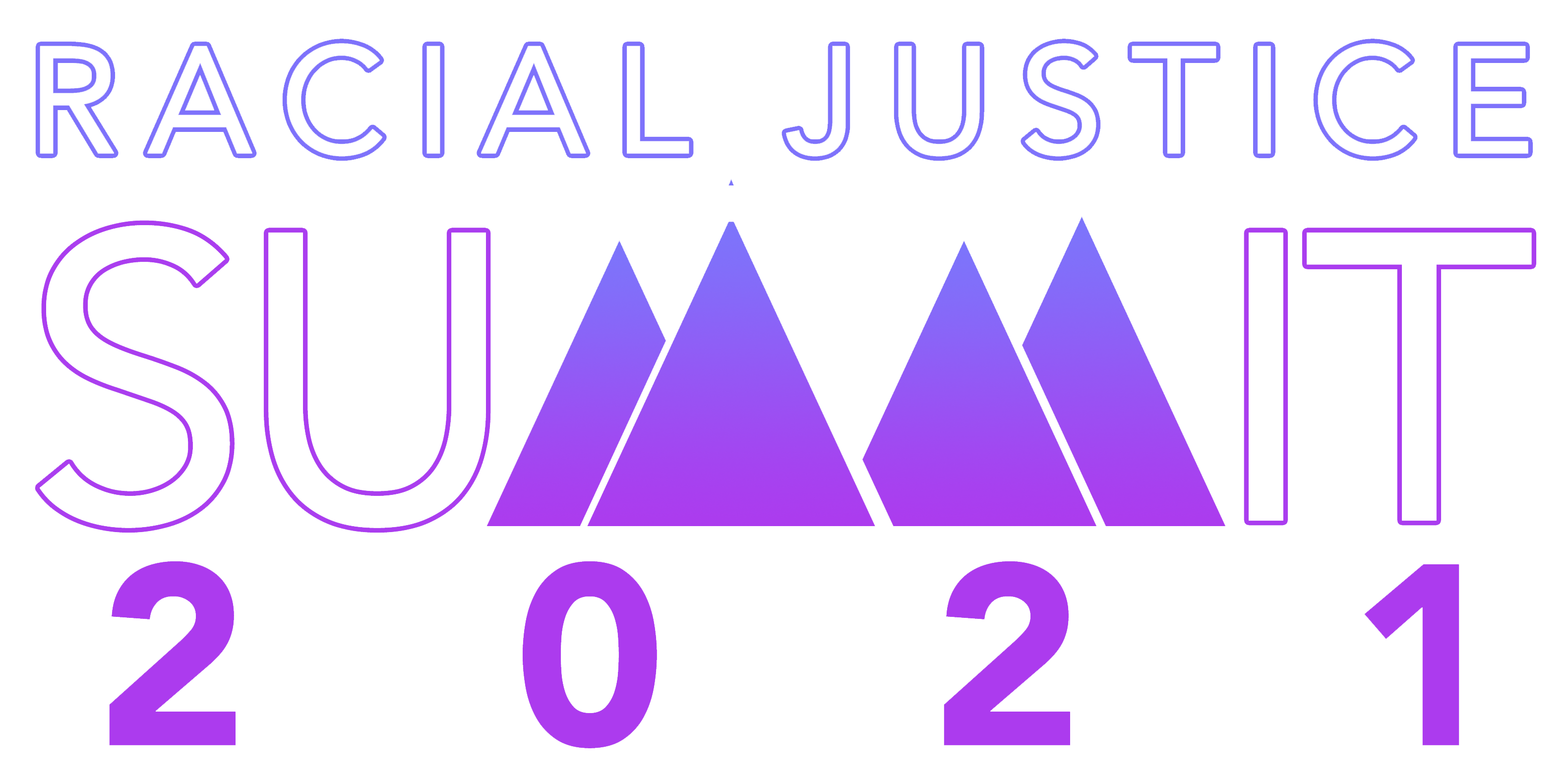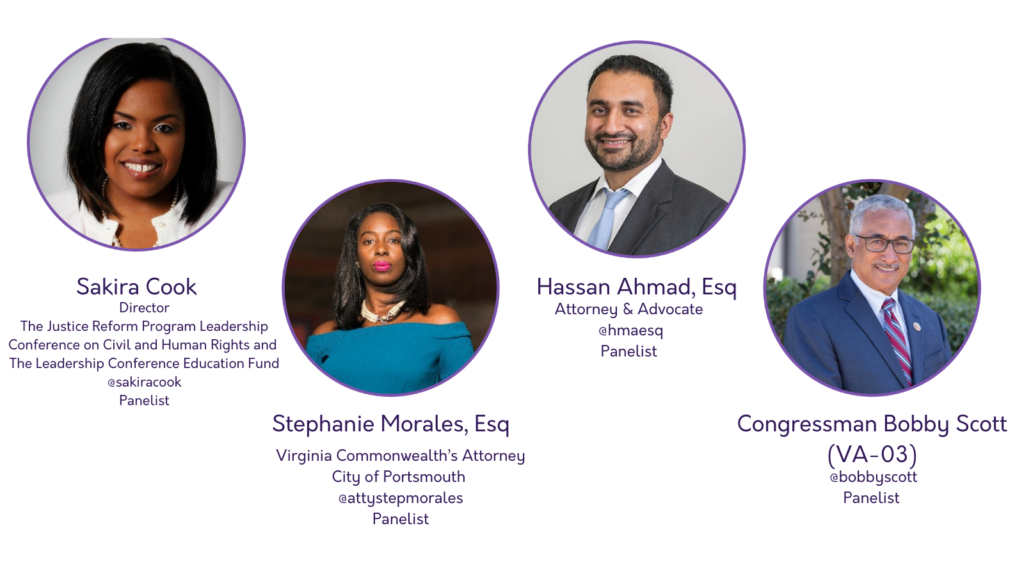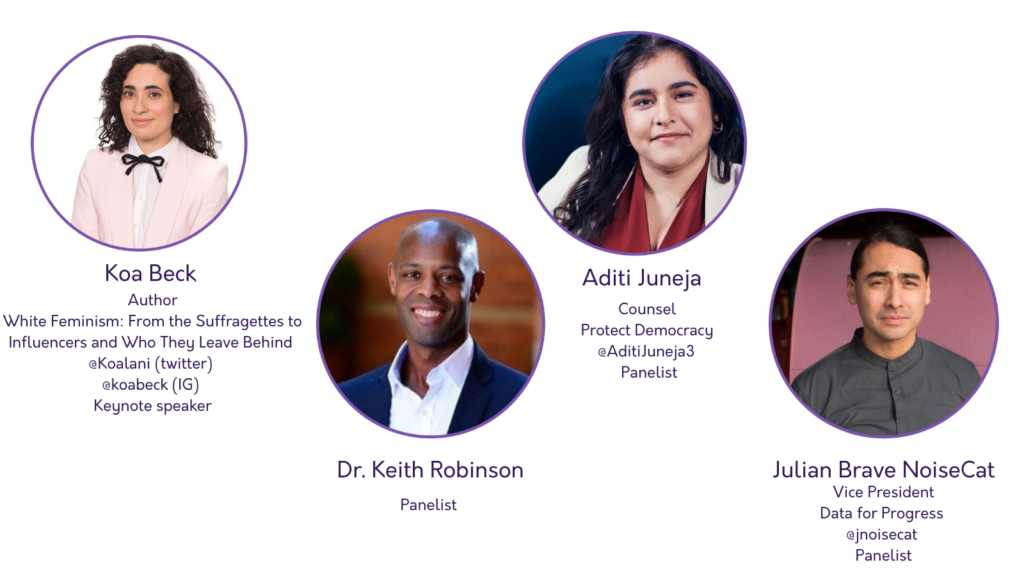Racial Justice Summit

2021 Racial Justice Summit
2020 was a challenging year. The outbreak of COVID-19 disrupted the lives of people all around the world. International, state, and local leaders acted. However, the hyperpoliticization of the pandemic response and historic global inequities resulted in asymmetric containment and disproportional access to fundamental resources. Social and economic dislocation has been widely felt, particularly by historically marginalized communities of color. While vaccines have been approved and are in the beginning stages of being distributed, tackling COVID-19 will be a long-term, multi-pronged effort to ensure those who live on the margins and most negatively affected by the virus have what they need for a safe and equitable recovery.
In the U.S, the pandemic further agitated the unrest that had been fueling a movement of grassroots activism on racial justice. It has forced many leaders to reflect upon our existing policies and deconstruct and evaluate their effectiveness and ability to adapt to a rapidly evolving country. From police brutality to health care access to closing the racial wealth gap, policy makers, experts, and activists are demanding change (and meeting resistance).
Through NOW’s Racial Justice Summit our special guests and participants will cover a number of timely topics and engage in a discussion about racialized policy in the U.S and the grotesque inequities that have emerged as a result. This virtual event offers an environment for activists to think about how we can better center communities of color in our policymaking and how NOW can push for progress and reform.
Watch individual panels here:
- Reproductive Justice
- Police Accountability
- Automated Inequality: Hidden Bias in Tech
- Rebuilding Democracy
Panel Topics
Reproductive Justice
Reproductive rights have been under attack for decades. Seismic shifts in our political landscape and conservatives’ strategic efforts to overtake legislatures and villainize pro-choice members of Congress have resulted in detrimental rollbacks in the access to reproductive care. These efforts have exacerbated racial and economic inequities in the United States. The 2020 elections served as a glimmer of hope for advocates of reproductive justice, but the last year also saw an unnerving number of losses in key districts where pro-choice champions were serving.
During this panel, we will discuss with activists, practitioners, and policy advocates about the current polarized political landscape and what it means for the fight for reproductive justice. In addition, our speakers will provide insight and opportunities for how to get involved in the fight for reproductive justice.
Police Accountability
In 2020, #DefundthePolice became a clarion call for racial justice activists across the country. The campaign’s aim was simple: to draw attention to the injustices within our criminal justice system that disproportionately impact Black, Brown, and TGNB communities, and advocate for jurisdictions to reapportion budgetary priorities to focus more on social services. However, disinformation campaigns by opponents led to widespread polarization on the issue of police reform, and even schisms within reform advocates’ own circles.
There is very little doubt that two justice systems exist in the United States. Historically marginalized communities receive far harsher punitive punishments relative to whites, even for the same crimes. Knowing this reality, this conversation seeks to unpack the history of our current criminal justice system and what we can do to implement reform using a racial justice framework.
Automated Inequality: Hidden Bias in Tech
It has been nearly forty years since the internet was first introduced to the public. Since then, it has become an essential part of our daily lives. We work, we shop, and we interact with our friends and family online and on various digital platforms. The current state of the global pandemic has only exacerbated this reality and driven us more into a virtual space. Now more than ever, the internet is nearly inextricably linked with access to basic needs, such as food, education, and our social interactions.
We are seeing social inequities and essentialized constructs that have plagued communities of color for years replicated online and in the technologies we utilize. The paradigm around race and racism has shifted to look at how digital spaces reinforce systems of oppression.
Our panel on digital inequities will facilitate a discussion around the reasons why online oppression matters, how it is manifested in our daily lives, and the implications for more accountability and building ethical technologies.

Rebuilding Democracy
Democratic systems of government are essential in the protection of human rights; however, the strength of democracies everywhere is being tested and pushed to the limits. We know that when governments falter, communities of color, LGBTQIA+ individuals, women, and immigrants are the most vulnerable and the first to suffer. When rights are threatened, social and political movements create spaces for collective impact and fighting back.
The fight for justice and equality, and the efforts to dismantle the structural barriers that hinder progress, require us to fundamentally shift the ways we think about systems of oppression, privilege, and the impact of discrimination.
With a new administration in the White House, the calls to return to a pre-Trump “normal” fall woefully short of the pressing need to rebuild a democracy that works for those who have been marginalized. Join our panel as we discuss ways to reframe our discourse to ensure that the voices of marginalized communities are amplified and elevated in our discussion of rebuilding democracy. In addition, this panel will discuss why it is critically important we listen to these voices, both in the U.S. and around the world.


